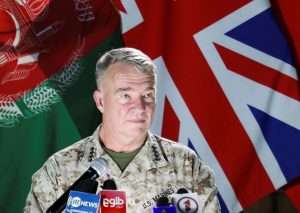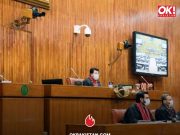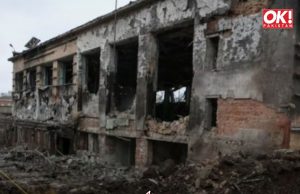ISLAMABAD: The top US general visited Pakistan in February 2021. Centcom chief General Frank McKenzie paid a visit a few months before the United States and its allies pulled out of Afghanistan per the terms of the Doha agreement between the Trump administration and the Taliban.

At the GHQ, he met with then-army leader General Qamar Javed Bajwa to discuss Afghanistan, in particular the situation when the United States withdraws its troops.
The US general was especially interested in Pakistan’s prediction for how long it would take for the Afghan Taliban to seize control of Kabul after the United States withdrew its forces.
Due of its proximity to Afghanistan and its ties to the Taliban, Pakistan’s view carried the most weight.
Although the Afghan Taliban could make gains by seizing other sections of the nation, General Bajwa had warned General Mackenzie that taking control of Kabul would be no easy feat, based on the assessment of Pakistan’s security services.
As the second anniversary of Kabul’s fall approaches on 15 August, The Express Tribune has this information at its disposal thanks to several off-the-record conversations with pertinent individuals.
The Pakistani army leader claimed that the Afghan National Army (ANA) would provide strong resistance to any Taliban forces who attempted to conquer Kabul.
General Bajwa estimated that the Taliban would need at least a year to retake Kabul if the United States withdrew its forces.
He assured the American general that the world community would have plenty of time during this window to convince all parties to agree on an inclusive administration.
In addition to President Biden’s own assessment, the US intelligence community provided their own when the departure date was eventually announced.
At first, US intelligence estimated that the Taliban would take control of Kabul in nine months.
In light of subsequent predictions by US security services that Kabul would fall within three months of a US withdrawal, this evaluation was altered.
The intelligence community reassessed the situation after seeing province after province fall quickly to the Taliban as the United States and its allies withdrew their troops from Afghanistan.
The Afghan National Army (ANA) had disappeared, and the Afghan Taliban were camped outside of Kabul as the final US troops prepared to withdraw from the war-torn country.
President Ashraf Ghani, under increasing pressure, abruptly left Afghanistan, allowing the Taliban to seize control of the capital city of Kabul with little to no bloodshed.
Kabul’s rapid fall to the Afghan Taliban highlighted the inaccuracies of intelligence gathered by both the United States and Pakistan.
Pakistan’s miscalculations weren’t limited to the fall of Kabul. The Taliban’s return to power in Afghanistan and the challenges it posed to Pakistan’s security were unknown to Islamabad.
In the immediate aftermath of the Taliban’s triumph, Pakistan saw this as a positive development.
The Tehreek-e-Taliban Pakistan (TTP) was outlawed in Pakistan, and the country’s first and greatest hope was that the Afghan Taliban would deal with them. The TTP has increased the frequency of its cross-border attacks over the past two years.
Pakistani officials have finally admitted that the TTP and the Afghan Taliban are “ideological cousins” due to the TTP’s refusal to take action against the Afghan Taliban.
Pakistan and the Afghan Taliban’s relationship is in jeopardy due to the TTP issue.




















































